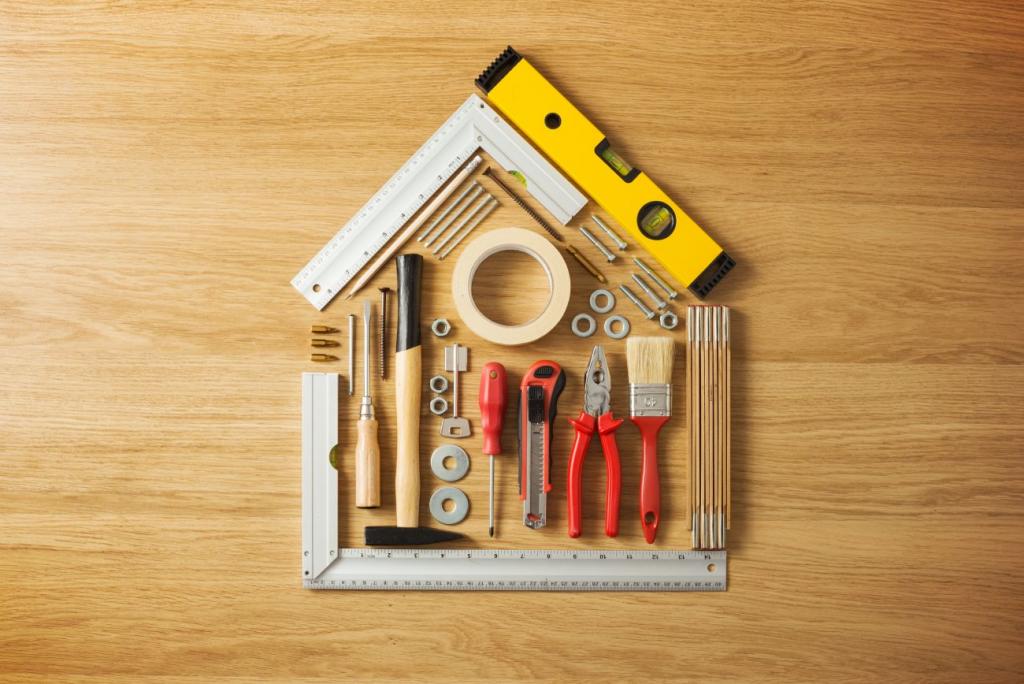If your home needs repair and your income is limited, the idea of remodeling it might seem impossible. Home renovations can be cost-prohibitive, placing them out of reach for low-income families. When a family is unable to complete home remodels, it can lead to worse housing conditions in the community.
In order to help low-income people to remodel their homes, there are several programs that are available.

Government Home Programs
There are several different government home programs for which you might be eligible. These programs can be used to complete renovations that increase the value of your home. So, you cannot use government home programs to fund things such as pools, outdoor kitchens, spas, or other luxury items.
Government home programs also have some common eligibility rules. Your application must be submitted prior to any work being done. These programs do not pay for renovations that have already been completed.
Plus, the types of renovations that are covered are restricted. Government home programs help to pay for basic home rehabilitation work that increases the value of the property. For example, a program might provide funds to replace cracked, old linoleum on your floors with carpet, hardwoods, or tile, but it may not pay for you to replace old linoleum with new linoleum because doing so would not increase your property’s value.1
When you use a government home program to complete renovations to your home, you should expect some oversight. The government wants to ensure that your project is real and that it is proceeding according to your plan. An inspector will visit at least once during your project.
In addition to renovating homes, some government programs may offer incentives to tear down a house in poor condition and to build a new one in its place.
No-Interest Loans
In some areas, home improvement programs are available through the local government. These programs might offer very-low or no-interest loans for home rehabilitation. The counties that offer these programs subsidize the loans. This subsidy can help to save you thousands of dollars in interest since it may be partially or completely subsidized by the local government.
Each county that offers a home improvement program will have its own eligibility requirements. There are some common requirements that are nearly universal, however.
In general, you have to be renovating an existing home and cannot use the loan to purchase a new home or to build additional buildings on the property. County home improvement programs also have income limits, meaning that your income must not exceed the limit that has been set. Finally, you cannot use a no-interest loan from your local government to add luxuries such as spas or pools.
Home improvement programs are not available in all areas. To find out if your county offers these programs, you can call the county assessor’s office in the area where you live. If your county offers a program, the assessor’s office may direct you to a private lender with which the county works to obtain a subsidized home improvement loan.2
FHA Rehab Loans
The Federal Housing Administration offers home rehabilitation loans through its FHA 203(k) rehab loan program. This program provides financing for homeowners to renovate their existing homes or to purchase homes that need repairs. When it is used to purchase a home in need of repair, the 203(k) rehab loan program wraps the mortgage and the rehab loan together into a single loan.
Normally, people who purchase homes that need to be repaired will obtain a mortgage that only covers the purchase cost. Applying for both a mortgage and a loan to remodel your home at the same time can lead to higher rates of interest, balloon payments, and longer approval times.
The FHA 203(k) rehab loan program allows you to obtain a single loan to pay for both the purchase of a home as well as the repairs that are needed. The government insures the loan for the lender, which helps to keep your interest rate low. It also allows you to complete repairs of $5,000 or more up to completely demolishing your home and rebuilding it as long as the foundation of the old home remains in place.3
To obtain this type of loan, you must go through an FHA-approved lender. Since it is a government program, you should expect some red tape.
Property Tax Exemptions
At the federal level, home improvement projects do not automatically qualify you for deductions on your income tax return. However, certain types of home improvements may qualify for deductions such as renovations that are medically necessary or that increase the energy efficiency of your home.
Some of the deductions that you might be able to claim on your federal tax return for home improvements include the following:
- Deductions of remodeling costs from your capital gains tax when you sell your home.
- Deduction for capital investments that increase the value of your home.
- Deductions for the points that you pay on a home remodeling loan.
- Deductions for medically necessary improvements such as wheelchair ramps, handrails, and bathroom modifications.
- Nonbusiness energy tax credit for improvements that increase the energy efficiency of your home.4
There are also local programs that might allow you to claim partial or total exemptions from your property taxes when you remodel your home. For local property tax exemption programs, the eligibility will vary by location. Typically, these programs require the property to be occupied by the owner. The allowed improvements are defined broadly as those that increase the value of the home. However, property tax relief will only be temporary.
Local programs will be administered by the towns or counties that offer them. If your county or town offers property tax exemptions for home improvements, it will be codified in the law. You might be required to fill out paperwork and to provide documentation to qualify to claim the exemptions from your property tax.
How to Qualify
The availability of programs through your local government may vary. Not all local governments offer the same type of assistance and not everyone will qualify.
To learn more about assistance programs that might help you to renovate your home, you should conduct further research.


